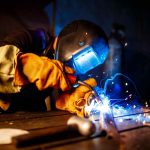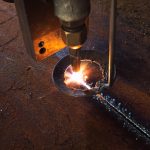La soldadura es vital en diversas industrias, desde la construcción hasta la fabricación de vehículos y la aeroespacial. La excelencia de las soldaduras es clave para la seguridad y solidez de cualquier proyecto. En este artículo veremos cómo se lleva a cabo un control de calidad efectivo en la soldadura ya que puede ser determinante y es esencial para el éxito de cualquier empresa del sector ¡Vamos a ello!

Why is quality control in welding essential?
How is the quality process in welding?
What are the advantages of quality control in welding?
In addition to ensuring integrity and safety, weld quality control offers other significant advantages. First, it provides long-term cost savings by identifying and correcting welding problems early in the process, thus avoiding costly repairs and replacement of components or entire structures. In addition, regulatory compliance is crucial in many industries, and quality control ensures that internationally recognized standards, such as those set by the AWS (American Welding Society) or ISO, are met, thus ensuring weld quality and safety.






